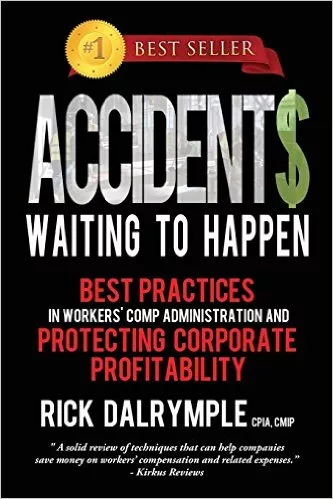Measuring Up: How to Avoid Plunder in Slower Economic Times
Sometimes it can be difficult to keep things in perspective. Adapting to a changing market versus panicking and imagining problems that don’t exist can be a tough balancing act to follow. How do you keep your business sharp and prepare for the future without making mountains out of molehills? This article contains some business tips designed to help you keep things in perspective.

With all the talk of a slower economy, war and election woes, it is easy to become a doomsayer with a negative outlook. I recently had a talk with one of my networking participants and had to chuckle when we got off the phone. He is in his late 30s, runs a great business but is experiencing a slight downturn and his business growth has leveled out. Times are definitely a lot tougher for him this year; he is only going to make 300K (that’s personal income, not sales volume) and he must work as much as 45 hours some weeks. Things sound pretty tough; maybe he should slit his wrists. Seriously, we can easily forget how tough it can be to build a business. When he joined our group seven or eight years ago, he was making about 10 percent of that amount and working 60 hours a week. The very nature of our free enterprise system requires businesspeople to adapt and if it were easy, everyone would be doing it.
Sometimes it can be difficult to keep things in perspective. Adapting to a changing market versus panicking and imagining problems that don’t exist can be a tough balancing act to follow. How do you keep your business sharp and prepare for the future without making mountains out of molehills? The following are business tips we believe can help you keep things in perspective.
1. Stop your bitching. Contracting can be an isolated and somewhat lonely proposition. To make matters worse, distributor and manufacturer reps can cry the blues. Be wary of crying the blues and listening to other contractors. Many of them don’t make any money anyway. They are too busy blaming someone else for all their issues. Stop complaining about the market, your employees, the government and other outside factors. Focus on activities that make your business better. Activity makes things happen. Moaning and groaning just ensures that you will not succeed because you are not doing anything to generate success. Change the things you can, accept the things you can’t and have the wisdom to know the difference.
2. Focus on the facts. Run a monthly financial meeting and, if that is not good enough, run a weekly one. Study each job’s profits, your profit and loss statement, your balance sheet, your payables, your receivables and your backlog. Deal with the facts, not emotions. Worried about the economy? Make sure it is not just a feeling of doom. Month by month, compare how many leads you received this year to the number of leads received last year.
3. Don’t tell war stories - make things happen. If you have a mature company, you probably kicked butt and took names as the company developed. Now is the time to go back to an action-oriented agenda. Your young, aggressive competitors don’t care how great you were; they are out to build their own companies. The free enterprise system is a battle of the fittest. Make sure you stay focused and your eye is on the ball. Companies tend to follow patterns of wonder, blunder, thunder and plunder. Wonder companies have just started into business and they wonder what they are going to do. Because they do good work at cheap prices, they quickly move to blunder where they have a lot of work but no money. Hopefully, they will figure it all out and move into thunder. However, plunder can be devastating. Plunder is the last stage of business where companies have peaked and fail to improve. Our business landscape is littered with former business giants that failed to change with the times.
4. Make a sales plan and stick to it. Identify who you want to work for and call on them. Make sure your closing ratios are solid. Review your sales effort carefully. Weak salespeople who were able to survive as order takers may not succeed in a slower market. Manage your sales effort and make sure your people are performing. Work the leads you have more and make sure you sell your share.
Build new sales relationships. Don’t be surprised when you call on new people if they are slow to warm up to your efforts. Remember, when the market was busy, they were using someone else and you may have been too busy for them. It will take time and persistence to get your foot in the door. If your business is mature and you are not willing to pay the price of building new relationships, maybe it is time to find someone who will.
5. Manage overhead. Overhead has a way of creeping up, whether it is insurance, rent, office supplies or salaries. Make sure you are managing your assets and getting the most for your investment. If you are expanding, make sure you do not take on more than you can accommodate given your cash flow. Yes, building a new building can be a great wealth-building strategy, but if it takes all of your excess capital to do so, you will not have money for a rainy day.
6. Focus on things that make your money. I know this seems like an odd thing to say, but lots of things get in the way of our financial success. Contracting has been in high demand for the past decade. Most business owners have been struggling to find enough employees and resources to get the work done. For a mature business, administrative duties can be overwhelming. Well, if what you need is sales, now is the time to focus on sales and make things happen. If you feel you don’t have time to do so, pretend you are on vacation for a week and use that time to work on marketing and sales. Successful people do what is important.
7. Evaluate your role. Many of us have heard consultants talk about things such as the need for owners to work on their businesses, not in their businesses. This is great advice, but if your greatest value to your business is sales and times are slow, then you had better put on your sales hat. If you are brilliant at laying out jobs and making sure production is perfect, you need to apply that skill to your organization. As an owner, you are probably the strongest catalyst in your business. Make sure that catalyst is pointed in the right direction and bringing you the most value. By the way, if you start doing the things that help the company make money, don’t be surprised if suddenly your business is a lot more fun. If you don’t want to pay the piper and make such an effort, that’s OK. Accept the fact you are going to make a little less money and if you can afford that, don’t worry about it. Or find some young fire-eater that is going to make things happen and drive the market the way you used to.
Show some leadership and make things happen. Let your employees know there is a plan. Demand performance and hold people accountable. If people are underperforming, shoot a hostage, no matter how long they have worked with you. Be fair but be realistic. You just might find out it’s fun to be back in the business battle.

Monroe Porter
With all the talk of a slower economy, war and election woes, it is easy to become a doomsayer with a negative outlook. I recently had a talk with one of my networking participants and had to chuckle when we got off the phone. He is in his late 30s, runs a great business but is experiencing a slight downturn and his business growth has leveled out. Times are definitely a lot tougher for him this year; he is only going to make 300K (that’s personal income, not sales volume) and he must work as much as 45 hours some weeks. Things sound pretty tough; maybe he should slit his wrists. Seriously, we can easily forget how tough it can be to build a business. When he joined our group seven or eight years ago, he was making about 10 percent of that amount and working 60 hours a week. The very nature of our free enterprise system requires businesspeople to adapt and if it were easy, everyone would be doing it.
Sometimes it can be difficult to keep things in perspective. Adapting to a changing market versus panicking and imagining problems that don’t exist can be a tough balancing act to follow. How do you keep your business sharp and prepare for the future without making mountains out of molehills? The following are business tips we believe can help you keep things in perspective.
1. Stop your bitching. Contracting can be an isolated and somewhat lonely proposition. To make matters worse, distributor and manufacturer reps can cry the blues. Be wary of crying the blues and listening to other contractors. Many of them don’t make any money anyway. They are too busy blaming someone else for all their issues. Stop complaining about the market, your employees, the government and other outside factors. Focus on activities that make your business better. Activity makes things happen. Moaning and groaning just ensures that you will not succeed because you are not doing anything to generate success. Change the things you can, accept the things you can’t and have the wisdom to know the difference.
2. Focus on the facts. Run a monthly financial meeting and, if that is not good enough, run a weekly one. Study each job’s profits, your profit and loss statement, your balance sheet, your payables, your receivables and your backlog. Deal with the facts, not emotions. Worried about the economy? Make sure it is not just a feeling of doom. Month by month, compare how many leads you received this year to the number of leads received last year.
3. Don’t tell war stories - make things happen. If you have a mature company, you probably kicked butt and took names as the company developed. Now is the time to go back to an action-oriented agenda. Your young, aggressive competitors don’t care how great you were; they are out to build their own companies. The free enterprise system is a battle of the fittest. Make sure you stay focused and your eye is on the ball. Companies tend to follow patterns of wonder, blunder, thunder and plunder. Wonder companies have just started into business and they wonder what they are going to do. Because they do good work at cheap prices, they quickly move to blunder where they have a lot of work but no money. Hopefully, they will figure it all out and move into thunder. However, plunder can be devastating. Plunder is the last stage of business where companies have peaked and fail to improve. Our business landscape is littered with former business giants that failed to change with the times.
4. Make a sales plan and stick to it. Identify who you want to work for and call on them. Make sure your closing ratios are solid. Review your sales effort carefully. Weak salespeople who were able to survive as order takers may not succeed in a slower market. Manage your sales effort and make sure your people are performing. Work the leads you have more and make sure you sell your share.
Build new sales relationships. Don’t be surprised when you call on new people if they are slow to warm up to your efforts. Remember, when the market was busy, they were using someone else and you may have been too busy for them. It will take time and persistence to get your foot in the door. If your business is mature and you are not willing to pay the price of building new relationships, maybe it is time to find someone who will.
5. Manage overhead. Overhead has a way of creeping up, whether it is insurance, rent, office supplies or salaries. Make sure you are managing your assets and getting the most for your investment. If you are expanding, make sure you do not take on more than you can accommodate given your cash flow. Yes, building a new building can be a great wealth-building strategy, but if it takes all of your excess capital to do so, you will not have money for a rainy day.
6. Focus on things that make your money. I know this seems like an odd thing to say, but lots of things get in the way of our financial success. Contracting has been in high demand for the past decade. Most business owners have been struggling to find enough employees and resources to get the work done. For a mature business, administrative duties can be overwhelming. Well, if what you need is sales, now is the time to focus on sales and make things happen. If you feel you don’t have time to do so, pretend you are on vacation for a week and use that time to work on marketing and sales. Successful people do what is important.
7. Evaluate your role. Many of us have heard consultants talk about things such as the need for owners to work on their businesses, not in their businesses. This is great advice, but if your greatest value to your business is sales and times are slow, then you had better put on your sales hat. If you are brilliant at laying out jobs and making sure production is perfect, you need to apply that skill to your organization. As an owner, you are probably the strongest catalyst in your business. Make sure that catalyst is pointed in the right direction and bringing you the most value. By the way, if you start doing the things that help the company make money, don’t be surprised if suddenly your business is a lot more fun. If you don’t want to pay the piper and make such an effort, that’s OK. Accept the fact you are going to make a little less money and if you can afford that, don’t worry about it. Or find some young fire-eater that is going to make things happen and drive the market the way you used to.
Show some leadership and make things happen. Let your employees know there is a plan. Demand performance and hold people accountable. If people are underperforming, shoot a hostage, no matter how long they have worked with you. Be fair but be realistic. You just might find out it’s fun to be back in the business battle.
Looking for a reprint of this article?
From high-res PDFs to custom plaques, order your copy today!





